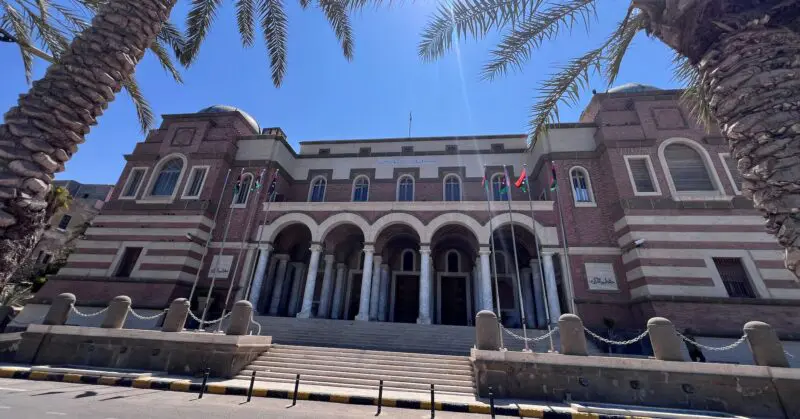Benzeer: Presidential move on Libya’s Central Bank is ‘Revealing’, Not ‘Creating’
Libyan Central Bank Shake-Up: Was it Legal? Expert Weighs In

Experts gathered at a symposium organised by the British Multicultural Forum in London emphasised that the crisis engulfing Libya’s Central Bank is not a recent development, but rather one that has been brewing for almost a decade. The situation has been further aggravated by recent political manoeuvres, including Presidential Council Decision No. 19 of 2024, which sought to appoint a new central bank governor.
Dr Ramadan Benzeer, a Professor of International Law, argued that while the decision was rooted in necessity and public interest, it exceeded the authority of the Presidential Council. The power to appoint the governor rests with the House of Representatives, in consultation with the Supreme Council of State.
The subsequent appointment of Mohamed El-Shokry has further complicated matters. El-Shokry declined the position, leading to the reconstitution of the Central Bank’s Board of Directors. However, the dismissed governor, Sadiq al-Kabir, has refused to step down, citing the illegality of the presidential decision.
Dr Benzeer highlighted al-Kabir’s lack of familiarity with Libya’s Banking Law, particularly regarding the roles of the governor and the Board of Directors. The central bank has operated without a board for years, a clear violation of the law, and al-Kabir’s unilateral decisions have had detrimental effects on the Libyan economy.
One such decision was the imposition of a 27% fee on foreign currency sales, a move deemed illegal by five Libyan courts. Despite these rulings, al-Kabir has refused to comply, further undermining the rule of law.
Dr Benzeer expressed concern over al-Kabir’s public claims of support from the US and Turkey, and his efforts to discourage international cooperation with the newly appointed board. Such actions, he argued, undermine Libya’s sovereignty and exacerbate the crisis.
The expert urged al-Kabir to prioritise the welfare of the Libyan people over his personal ambitions, warning that the ongoing crisis could lead to the collapse of the Libyan dinar, especially in light of the oil shutdown.
The overarching theme of the symposium was the urgent need for political consensus in Libya. Dr Benzeer concluded that all current political bodies in Libya can be considered “de facto” authorities, having lost their legal legitimacy.
The conflict in Libya, he stressed, is fundamentally political, not legal, and its resolution hinges on political dialogue and compromise.
How to submit an Op-Ed: Libyan Express accepts opinion articles on a wide range of topics. Submissions may be sent to oped@libyanexpress.com. Please include ‘Op-Ed’ in the subject line.
- Foreign nationals apprehended during alcohol seizure operation in Libya - April 11, 2025
- UN chief rejects Israeli Gaza aid proposal - April 09, 2025
- Libya’s financial feud escalates as PM accuses rivals of sabotage - April 09, 2025


